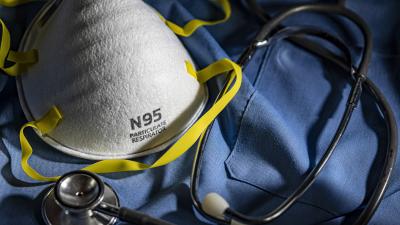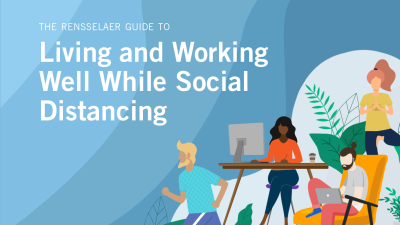New Findings and Approaches Emerge from Remote Investigation
TROY, N.Y. — On a typical April day, Jackie Pelham would spend most of her time in a lab coat and goggles. Working at a laboratory bench, she would examine proteins found in the body. But lately, Pelham has traded her lab coat for a laptop and her lab bench for a desk in her home. Rather than observing biochemical processes, she is poring over previously collected data. Somewhat unexpectedly, even to her, Pelham sees this temporary trade-off as an opportunity.









